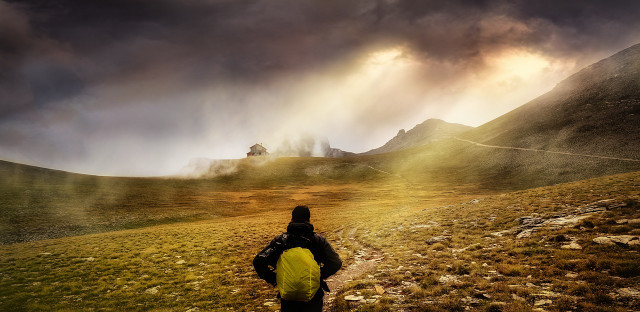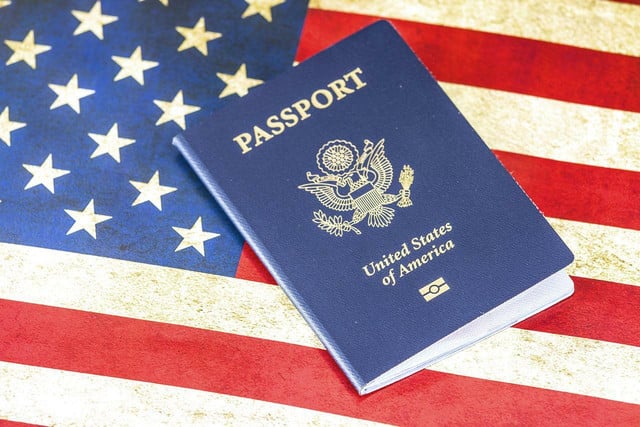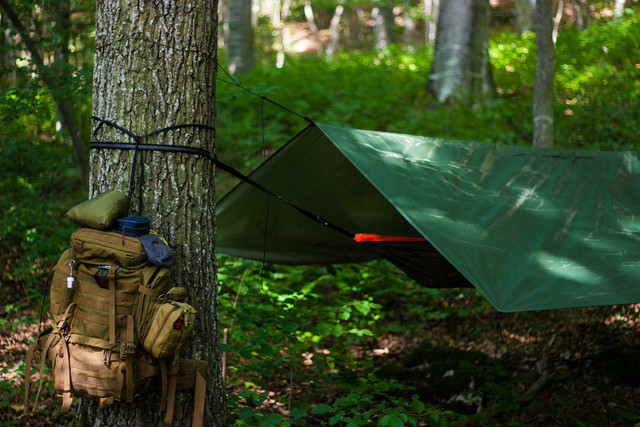Your go bag list might just help you and your family survive a major disaster. Find out how to create a comprehensive and sustainable survival kit using practical tips.
None of us like to imagine ourselves or our loved ones in a natural disaster, but unfortunately, they are becoming increasingly common. They are predicted to become more severe and even more frequent as the effects of climate change really begin to manifest. In 2021 alone, the US saw 20 natural disasters including:
- 1 drought event
- 2 flooding events
- 11 severe storm events
- 4 tropical cyclone events
- 1 wildfire event
- 1 winter storm event
Likewise, war is a huge threat to our safety. Nobody wants to dwell on the potential for war, but the reality is that the US government remains heavily involved in many of the conflicts that are raging around the globe. We will never forget 9/11 and unfortunately, global geopolitics and the war on terror are still volatile and unstable. Considering the state of our planet today, being prepared for the worst is a good idea. Learn how to be prepared with a ‘go bag’ list.
Your Go Bag List



(Foto: CC0 / Pixabay / Aris_Tsitiridis)
In view of the increasing intensity and frequency of natural disasters across the country, the government advocates that we prepare a ‘go bag’ to increase our chances of survival if struck with one. Food and water are at the top of the list, along with the following items:
- Radio: Use a battery-powered or hand crank radio as you may not have a power source during a disaster.
- Flashlight
- First aid kit
- Extra batteries
- Whistle: To signal for help.
- Dust masks: In case the air needs to be filtered.
- Plastic sheeting and duct tape
- Moist towelettes, garbage bags and plastic ties
- Wrench or pliers: To turn off utilities.
- Manual can opener
- Local maps
- Cell phone with chargers and a backup battery or power bank
'Go Bag' List: The Essentials For Basic Human Survival



(Foto: CC0 / Pixabay / MabelAmber)
Alongside the items listed by the government, we have a few more suggestions about extra items you might want to put on your ‘go bag’ list. We’ll give you a few more tips on how to keep your survival kit as sustainable and eco-friendly as possible. As well as food and water, shelter and heat are the basic human needs for survival — so it’s important to think about these aspects first.
Water: One gallon per person per day is recommended. Find out how to reuse your plastic water bottles safely to reduce plastic waste or choose an alternative like glass or stainless steel. It is also important that you learn how to clean your reusable bottles to minimize the chance of harmful microbes.
Food: Don’t pack perishable goods in your go bag to avoid food waste. Canned or dried food won’t expire quickly. You could sterilize jars for canning at home to save money and resources. Pickling is also an easy way of preserving food for your go bag. Pickled cherries, pickled red cabbage and pickled walnuts are all nutrient-dense foods that won’t take up a huge amount of space and will keep for several months unopened.
A tent and sleeping bags should also be part of your emergency survival pack to ensure shelter and heat in the event of leaving your home. You might find our guide to wild camping helpful in preparing for life without electricity and sewage if you are inexperienced.
Clothes are an important part of your go bag list and should be warm and waterproof. Packing long-forgotten attire could be one of many sustainable things to do with old clothes, instead of throwing them out. If you do wish to purchase new gear that is fit-for-purpose — try vegan clothing brands.
Add These Helpful Items to Your 'Go Bag' List



(Foto: CC0 / Pixabay / cytis)
Personal care items will be a particularly important item for your ‘go bag’ list if you are female or packing for one in your family. Disposable sanitary products contribute to the environmental plastic and waste crisis — so consider items like menstrual cups, period panties, or sustainable tampon alternatives for your survival kit and regular use instead.
Toilet paper is another consideration and buying recycled paper is the better option for the planet. You could save room for something else by checking out some toilet paper alternatives instead. For hygiene, castile soap is a natural and versatile favorite you can wash your hair, body, dishes and even your dog with. You might also like to introduce this nontoxic product into your daily life too!
Eating utensils are also an important element on your ‘go bag’ list. Wooden cutlery will degrade naturally and can be washed and reused several times over. Skip the straws completely, or opt for bamboo straws instead of the plastic variety.
Important documents, like passports, driving licences and certificates, should be at least copied electronically and on paper for your go bag. The originals can be kept nearby for easy grabbing. You should also make copies of family and important phone numbers in case you lose your phone in the chaos.
Medications and sunscreen are another consideration. You might like to include a copy of your prescription in your important documents section. Check out our guide on chemical vs physical sunscreen to find out which might work best for you. Don’t forget to keep an eye on the expiry dates as using expired sunscreen is complicated.
Additional 'Go Bag' List Items to Consider



(Foto: CC0 / Pixabay / TheMetalMann)
A sewing kit might sound like the least essential item in a crisis but could just come in handy. Even a basic needle and thread could save a hole in the tent, sleeping bag or any fabric you are relying on for heat and shelter. Duct tape can also help with repairs and won’t take up too much space.
Self-defense is another thought and one you might want to consider for your everyday life too. Pepper spray is a relatively easy option for deterring predators without violence. A sharp knife may act as a weapon or a tool, depending on the situation and might be worth adding to your go bag list too.
Pet supplies are important if you own a furry friend. Dried or canned food will last longer and don’t forget to check expiry dates regularly and switch early to avoid waste. Including a water and food bowl for your pet is also important.
Read more:
- 10 Essential Tips for Camping as a Family
- Take Action: 15 Everyday Ways to Combat Climate Change
- 12 Practical Tips for Minimalist Living: Make Your Life Easier
Do you like this post?







